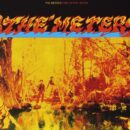This summer, Gibson is launching a global search for missing shipping ledgers from 1959-1960. The 1959-1960 Gibson ledgers contain the shipping records of all the Gibson guitars created during that year, and proudly documents an important period in Gibson’s 126-year old history; the pinnacle of the Gibson Golden Era. The 1959-1960 shipping ledgers in question disappeared from Gibson’s archives around thirty years ago and may have never made the move with the company from Kalamazoo, MI to its hometown of Nashville, TN.
The Gibson family is asking for assistance in recovering the missing 1959-60 ledgers, and upon validation of the 1959-60 ledger’s authenticity, the person or persons who safely returns the books will receive a $59,000.00 cash reward, with zero questions asked.
In addition, Gibson is seeking to recover pre-1970 documents, blueprints, and unique Gibson historical assets. Gibson is willing to evaluate relevant items and individual rewards terms on a case-by-case basis. Gibson reserves the right to validate information and to authenticate materials as genuine articles prior to issuing rewards for pre-1970 items, which may include cash, Gibson gift cards, instruments, and experiences (conditions apply).
Following is the three-step Gibson validation request process for all items:
1.) Send validation requests to: 59Ledger@gibson.com or Ledger@gibson.com.
Emails must include:
c. Contact email and phone number
2.) The validation email request will be reviewed within 15 business days by the Gibson
Jason Davidson (Director of Consumer Services).
3.) Based on the GHC’s analysis, the submitting party will be contacted with next steps and instructions.
Joe Bonamassa adds, “To find the original ledgers is to unearth knowledge of a pivotal point in America’s contribution to not only guitar manufacturing but to Rock and Roll itself.”














